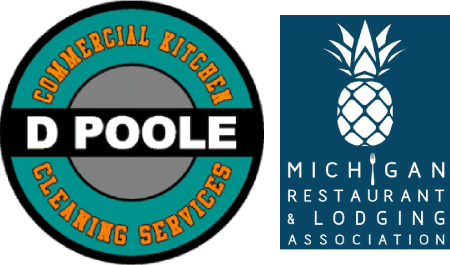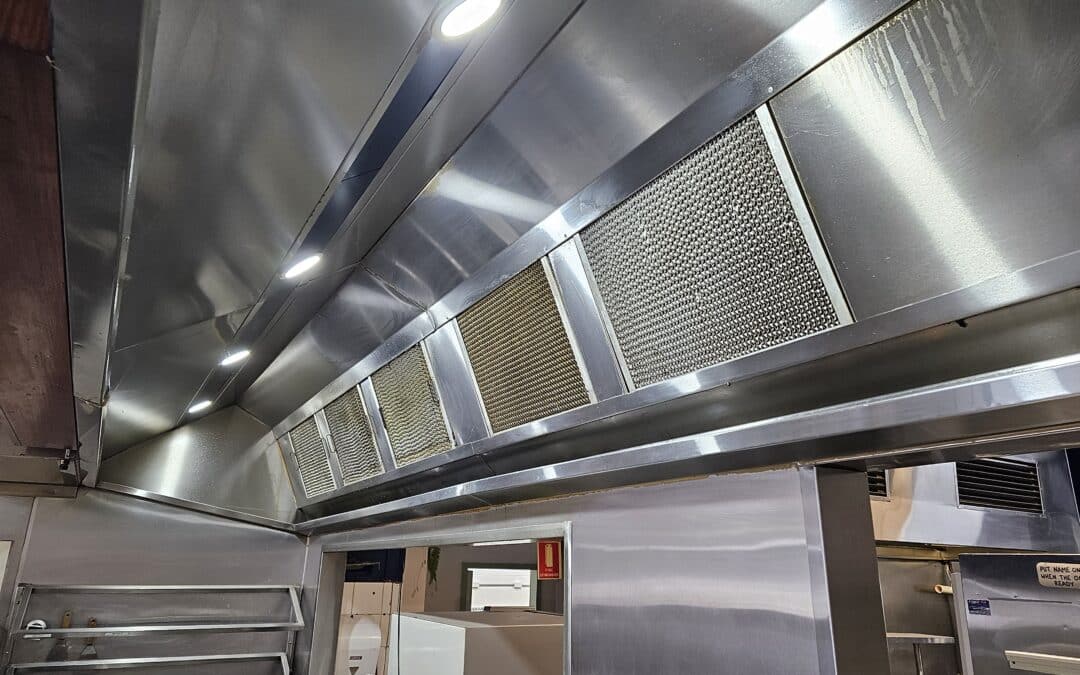You check your kitchen. Everything looks spotless. You trust your crew. Maybe you even get the exhaust hoods wiped down every so often. So why are some buildings suddenly hit with roof leaks, ruined equipment, or even kitchen fires, seemingly out of nowhere?
What if the real danger is something you can’t see? What if the single most expensive threat to your restaurant or facility is quietly building up above the ceiling tiles right now?
Most owners never find out until the damage is done. Could your building be at risk without you realizing it? The answers might surprise you – and they all start with commercial kitchen exhaust cleaning.
The Grease Problem: What You Don’t See Is What Destroys You
Every time your kitchen goes into full swing, tiny particles of grease and vapor are sucked up into the exhaust hood. They travel through ductwork, pass spinning fans, and exit onto your rooftop. A well-maintained system should carry these particles all the way out, leaving nothing behind.
But that’s not what usually happens. Here’s why:
- Cleaning companies often focus only on the hood and the parts you can see.
- Duct interiors and fans are awkward, hard to reach, and easy to skip.
- Over months and years, layer after layer of grease clings to metal, out of sight and out of mind.
With every shortcut, your building absorbs a little more risk. Eventually, the price becomes impossible to ignore.

Roof Damage from Kitchen Exhaust: The Silent, Spreading Rot
Let’s start at the top. Every time a batch of vaporized grease escapes onto your rooftop, it settles. With Michigan’s cycles of rain, snow, and baking summer sun, that residue breaks down roof membranes faster than almost anything else.
What does that mean for your building?
- Corroded Roofing: Grease eats away at the glue and protective layers meant to keep water out. The roof softens, blisters, and eventually leaks.
- Insulation Soaked in Grease: Once water finds a path, it soaks the insulation beneath, reducing energy efficiency and letting mold take hold.
- Structural Rot: Wet insulation and wood mean decay. In time, beams weaken and repairs become urgent and expensive.
- Warranty Headaches: Most roofing warranties are voided by obvious grease contamination, leaving you on the hook for every dollar of repair.
Ignore commercial kitchen exhaust cleaning for a year or two, and your “budget” cleaning decision will come back to haunt you every time it rains.

Fire Hazard Kitchen Hood Systems: Grease Is Always Ready to Ignite
Think back to the last time a pan flared up or a fryer spat oil. Now imagine that happening inside your ductwork, out of sight, surrounded by months of sticky grease.
This is exactly how kitchen fires start:
- A single flare-up from the cookline travels up into the exhaust.
- If grease is there, it catches fire in seconds and races through the duct, turning the whole system into a blowtorch.
- Flames can reach the roof before anyone realizes there’s a problem, spreading fast and often finding more fuel at the rooftop fan or grease traps.
Insurance investigators see it every year: “Minor” kitchen fires that turn catastrophic because neglected grease gave the flames a clear path. Restaurants lose weeks or months of business, sometimes permanently. And if your cleaning logs show missed areas or infrequent service, you may be left fighting for coverage.

Poorly Cleaned Kitchen Ducts: Where Most Companies Get It Wrong
Here’s the ugly truth: Most cleaning companies do the bare minimum. They’ll polish the hood, wipe around visible areas, and leave. Duct interiors? Fan blades? Rooftop traps? Too often, they’re ignored because no one’s watching.
Why does this matter?
- Ductwork bends and elbows: These are prime spots for grease to collect, out of reach of a quick wipe.
- Fan housings and bearings: Grease here destroys motors, causes vibration, and shortens the lifespan of expensive parts.
- Rooftop exhaust fans: If these aren’t scrubbed, they drip grease onto the roof every day, compounding the damage.
If your provider isn’t sending photo documentation, before and after, inside and out, they’re probably missing the mess that matters most. This is why DPoole insists on complete transparency. If we can’t show you what we cleaned, you shouldn’t pay for it.

What You’re Really Risking If You Neglect Commercial Kitchen Exhaust Cleaning
Neglecting commercial kitchen exhaust cleaning never ends with a single problem. One leak leads to another, and fire risk grows quietly over time. The fallout goes beyond just maintenance costs:
- Lost Revenue: Every day your kitchen is shut down for repairs is money out the door, and money your competition is making instead.
- Insurance Denials: Adjusters can (and do) deny claims if cleaning wasn’t up to code or properly documented.
- Health Department Fines: Grease leaks, water damage, or fire can bring the health department, shutting you down for violations.
- Damaged Reputation: Word spreads fast about restaurants that close unexpectedly. Rebuilding trust after a fire or major leak is never easy.
Protect Your Building with Regular Commercial Kitchen Exhaust Cleaning – Don’t Gamble With Grease
If you own or manage a restaurant or commercial kitchen in Michigan, it’s not a matter of if neglect will cost you, but when. The safest buildings are the ones cared for by professionals who know where to look, what to clean, and why every inch matters.
Don’t let poor kitchen exhaust cleaning destroy your building, your business, or your future. Book a detailed, fully documented commercial kitchen exhaust cleaning with DPoole today, and get peace of mind that starts from the rooftop down.

